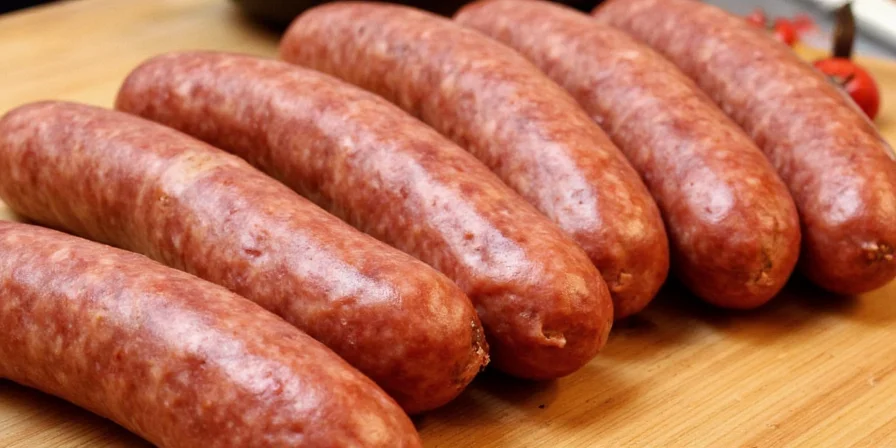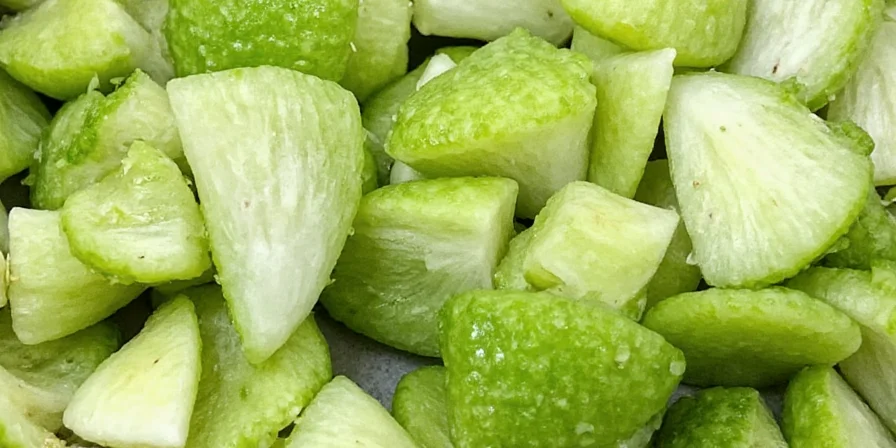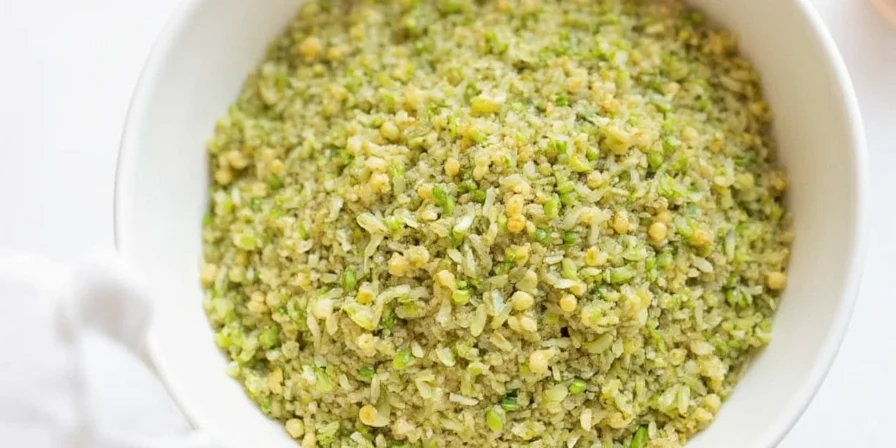Fennel has a distinctive sweet, earthy flavor with mild licorice notes and subtle warmth - less intense than anise but more complex than dill. If you've ever wondered 'what does fennel taste like exactly?', you're not alone. This comprehensive guide breaks down fennel's flavor profile, scientific characteristics, and practical culinary applications so you can use this versatile spice with confidence.
Table of Contents
- What Does Fennel Taste Like? The Complete Flavor Profile
- Fennel vs Anise: Key Taste Differences Explained
- 10 Practical Ways to Use Fennel in Cooking
- Perfect Flavor Pairings for Fennel
- How Cooking Methods Affect Fennel's Flavor
- Science-Backed Health Benefits of Fennel
- Why Fennel is an Eco-Friendly Spice Choice
- Fennel Compared to Similar Spices: Flavor Chart
- Buying Guide: How to Select Quality Fennel Seeds
- Frequently Asked Questions About Fennel Flavor
What Does Fennel Taste Like? The Complete Flavor Profile

Fennel seeds deliver a complex flavor profile characterized by:
- Sweet licorice notes: From the compound anethole (60-70% of essential oil)
- Earthy undertones: Distinctive herbal base that balances the sweetness
- Citrus hints: Subtle lemony notes, especially in fresh fennel bulb
- Warm spice: Mild peppery finish without actual heat
Unlike anise which hits you with intense licorice upfront, fennel offers a more rounded, sophisticated flavor that integrates seamlessly into dishes. When raw, fennel seeds have a slightly bitter edge that transforms into sweet complexity when toasted.
| Taste Dimension | Fennel Seed Characteristics | Scientific Basis |
|---|---|---|
| Sweetness Level | Medium-high (less sweet than anise) | Anethole concentration at 60-70% vs 80-90% in anise |
| Licorice Intensity | Mild to moderate | Lower anethole concentration and presence of other compounds |
| Earthy Notes | Prominent herbal base | Felichromene and other terpenes |
| Citrus Elements | Subtle lemon/lime notes | Presence of limonene (8-10%) |
Fennel vs Anise: Key Taste Differences Explained

Many confuse fennel and anise, but their flavor profiles differ significantly:
| Characteristic | Fennel Seeds | Anise Seeds |
|---|---|---|
| Primary Flavor | Balanced sweet-earthy with mild licorice | Strong, upfront licorice |
| Aftertaste | Clean, slightly warm finish | Prolonged sweet licorice |
| Heat Tolerance | Improves with cooking | Loses intensity when heated |
| Best Culinary Uses | Savory dishes, breads, slow-cooked meals | Baking, liqueurs, sweet applications |
Pro tip: When a recipe calls for 'licorice flavor,' check whether it specifies fennel or anise - they're not interchangeable in delicate dishes.
10 Practical Ways to Use Fennel in Cooking

Maximize fennel's potential with these chef-tested techniques:
- Toast for depth: Dry-toast seeds 1-2 minutes until fragrant (don't burn) to enhance sweet notes
- Grind fresh: Use mortar & pestle for sauces where pre-ground loses potency
- Bloom in oil: Heat seeds in cooking oil 30 seconds to release flavor compounds
- Add early in cooking: For stews and braises, add whole seeds at beginning
- Add late for brightness: Sprinkle crushed seeds on finished dishes for fresh note
- Infuse liquids: Steep in broth, cream, or simple syrup for flavored bases
- Combine with acid: Balance with lemon juice or vinegar to prevent sweetness overload
- Use in bread: Add 1 tsp per loaf to focaccia or sourdough for subtle complexity
- Enhance seafood: Sprinkle on fish before baking with lemon slices
- Create compound butter: Blend with butter, lemon zest, and parsley
Perfect Flavor Pairings for Fennel
These combinations maximize fennel's strengths while balancing its characteristics:
- Fat + Acid: Olive oil and lemon juice help carry and balance fennel's essential oils
- Alliums: Onions, leeks, and garlic amplify fennel's sweet notes through Maillard reaction
- Tomatoes: Slow-roasted tomatoes create synergistic umami with fennel
- Pork and Sausage: Traditional pairing where fennel cuts through richness
- Citrus Zest: Orange or lemon zest brightens fennel's earthiness
- Warm Spices: Coriander and cumin create complex spice bases
How Cooking Methods Affect Fennel's Flavor

Fennel responds differently to various cooking techniques:
- Raw: Slightly bitter with pronounced licorice notes - best finely ground
- Toasted: Sweetness intensifies, bitterness reduces, aroma becomes nutty
- Braised/Simmered: Licorice notes mellow, earthy flavors deepen
- Roasted: Develops caramel notes while retaining structure
- Infused: Creates subtle background flavor without texture
For maximum flavor impact: Toast whole seeds first, then use appropriate form (whole, cracked, or ground) based on cooking time and desired intensity.
Science-Backed Health Benefits of Fennel
Fennel's benefits are supported by clinical research, not just tradition:
- Digestive relief: Multiple studies confirm fennel's effectiveness for reducing infant colic and adult bloating through antispasmodic effects
- Antioxidant properties: Contains rosmarinic acid and quercetin that combat oxidative stress
- Hormonal balance: Research shows potential for reducing menstrual pain and menopausal symptoms
- Anti-inflammatory: Anethole reduces inflammatory markers in clinical trials
- Breath freshening: Antimicrobial properties reduce odor-causing bacteria
Note: While beneficial, fennel shouldn't replace medical treatment for serious conditions. Consult your healthcare provider for medical concerns.
Why Fennel is an Eco-Friendly Spice Choice
Fennel's sustainability advantages make it a smart choice for environmentally conscious cooks:
- Water efficiency: Requires 30% less water than comparable spices like coriander
- Soil regeneration: Deep root system improves soil structure in degraded lands
- Zero-waste potential: Bulb, fronds, pollen, and seeds all used in cooking
- Pest resistance: Naturally repels aphids and other garden pests
- Long harvest window: Seeds remain viable for 2+ years when stored properly
Chefs increasingly choose fennel for sustainable menus, especially in Mediterranean and drought-prone regions where its resilience shines.
Fennel Compared to Similar Spices: Flavor Chart

| Spice | Flavor Profile | Best Uses | Substitution Ratio |
|---|---|---|---|
| Fennel Seeds | Sweet, earthy, mild licorice | Sausages, breads, braises, seafood | 1:1 for recipes needing subtle licorice |
| Anise Seeds | Strong, sweet licorice | Baking, liqueurs, sweet applications | Use ⅔ amount of fennel for anise |
| Dill Seed | Grassy, citrusy, mild | Pickling, fish, dressings | 2x fennel for similar intensity |
| Caraway | Earthy, nutty, mild licorice | Rye bread, goulash, cabbage dishes | 1:1 in savory applications |
Buying Guide: How to Select Quality Fennel Seeds
Follow these expert tips for maximum freshness and flavor:
- Visual inspection: Look for uniform greenish-brown color (avoid yellowed seeds)
- Smell test: Fresh seeds should have strong, sweet aroma (weak smell = stale)
- Texture: Should feel slightly oily when crushed between fingers
- Purchase whole: Buy whole seeds and grind as needed (pre-ground loses 60% potency in 6 months)
- Storage: Keep in airtight container away from light (lasts 18-24 months)
- Seasonality: Fall-harvested seeds have highest oil content (best August-November)
Frequently Asked Questions About Fennel Flavor
What does fennel taste like compared to anise?
Fennel has a milder, more balanced licorice flavor with prominent earthy undertones, while anise delivers a stronger, sweeter, more singular licorice taste. Scientifically, fennel contains 60-70% anethole (the compound responsible for licorice flavor) compared to 80-90% in anise, explaining the intensity difference.
Is fennel sweet or bitter?
Raw fennel seeds have a slight bitter edge that transforms into noticeable sweetness when toasted. The perceived sweetness comes from anethole interacting with sweet receptors on your tongue, though fennel contains no actual sugar.
Does fennel taste like black licorice candy?
Not exactly. Black licorice candy uses anise oil (80-90% anethole) for intense flavor, while fennel's lower anethole concentration (60-70%) creates a more complex, earthy profile with citrus notes that candy lacks.
Why does fennel taste different when cooked?
Heating transforms fennel's chemical compounds - anethole becomes more soluble, bitter compounds break down, and new flavor compounds form through Maillard reactions. Toasting specifically enhances sweet notes while reducing bitterness.
Can I use fennel instead of anise in recipes?
Yes, but adjust quantities: use 1.5x fennel to match anise's intensity. Fennel works better in savory dishes while anise excels in sweet applications. For liqueurs or baking, anise remains preferable.










 浙公网安备
33010002000092号
浙公网安备
33010002000092号 浙B2-20120091-4
浙B2-20120091-4